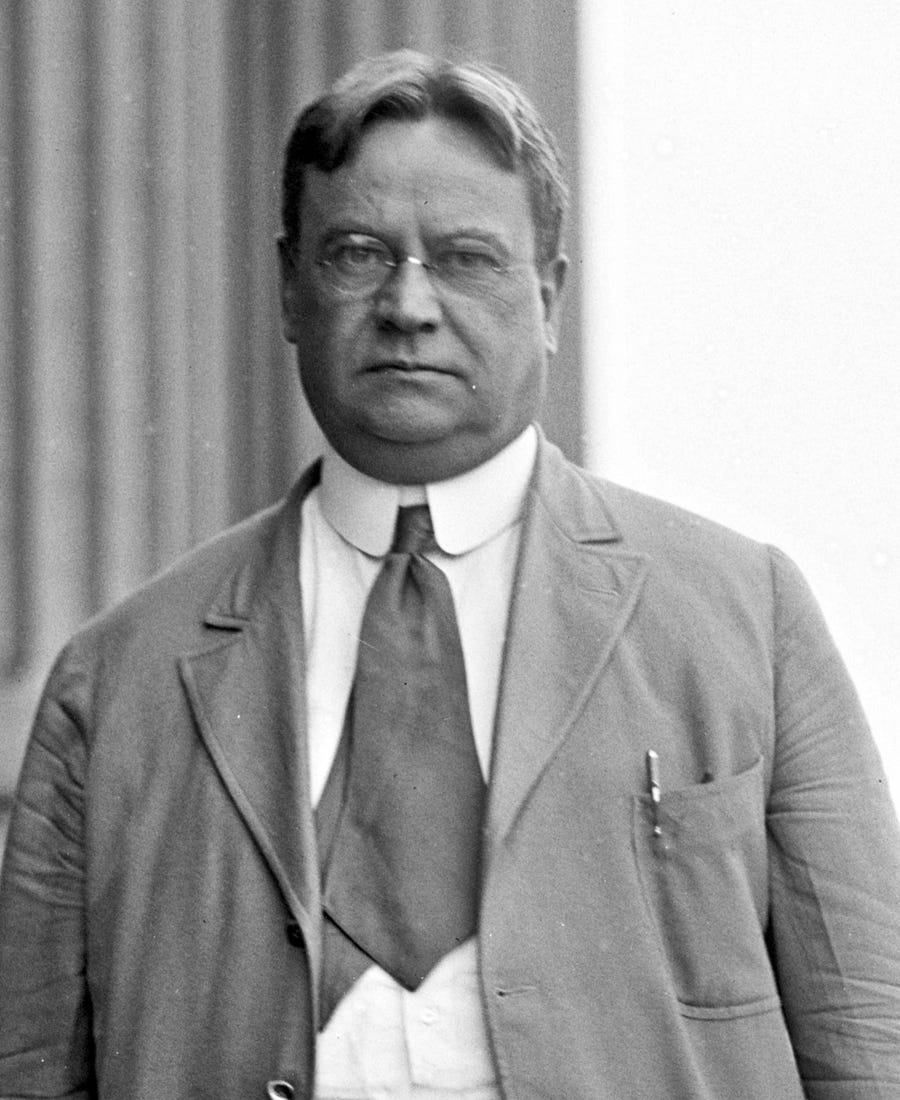Making sense of a weird war
Reasonable doubts about Ukraine? Don’t worry, we have them too.
Last week’s happenings are a powerful witness to the vivacity of the Empire’s agitprop machine. Drowned in a sea of decontextualized microevents, who to trust? This could be the dawn of the Third World War, for all we know.
The First one was fought to make the world safe for democracy; the Second one, to make it safe for only certain types of democracy. Twice a coincidence, three times a pattern.
No NATO country is too eager to have its soldiers die for Ukraine, which after all does not really belong to the Alliance. The typical NATO citizen is not even willing to fight even for his own country. It’s difficult to imagine European governments with the ability to withstand the backlash that a high-intensity conflict would imply. The West is demoralized, and loyalty to the authorities is hitting historic lows.
Apparently, the war does not enjoy tremendous support in Russia, either. Only the inner circles of power seem to push for it, the population remaining lukewarm when not outright hostile to it. Putin gets old and generational change looms over the horizon: the Chechen Wars feel as far away to the Russian zoomer as Iraq to his American counterpart.
And yet, the Great War was not exactly popular, either; we all know how that story ends.
Another covidian excuse, capable of channeling power once again? Just as the pandemic replaced Yellow Vests with face masks, could the Canadian trucks be replaced by tanks?
Hiram W. Johnson, Republican senator for California, famously said in 1917 that the first casualty of war is the truth. Sometimes the quote is attributed to Aeschylus (525-426 BC) instead. The uncertainty of the attribution makes this, by itself, a funny meta-joke for an article about wartime fake news.
As an isolationist progressive, Johnson opposed East Asian immigration to the US and Woodrow Wilson’s League of Nations, but enthusiastically endorsed Roosevelt's New Deal. A confidential report on him, made in 1943 by Isaiah Berlin for the Foreign Office, described him as follows:
“(…) an implacable and uncompromising Isolationist with immense prestige in California, of which he has twice been Governor. His election to the Senate has not been opposed for many years by either party. He is acutely Pacific-conscious and is a champion of a more adequate defence of the West Coast. He is a member of the Farm Bloc and is au fond, against foreign affairs as such; his view of Europe as a sink of iniquity has not changed in any particular since 1912 (…)”
Perhaps Johnson was clairvoyant in predicting the necessity for an Asia-Pacific shift. He would never live to see it fulfilled, though: he died on August 6th, 1945, just as the first atom bomb was falling over Hiroshima.
Today, a clear view of the world seems almost unattainable. The fog of war is thickened by Internet connections and the ever-present suspicion raised by deep fake technology. This hypernormalized climate only contributes to the weirdness of an already weird war.
Because it’s weird, man.
Apparently, Russia has only committed its greenest forces; tired young men who have been sleeping in the cold mud for weeks now. Until now, heavy weaponry has been sparsely used: almost no artillery nor air support, apparently. Spectacular armored columns out of the 70s strike from the past, advancing unprotected: strange behavior for an army that has been waging near continuous offensive war since the 90s – gruesome, casualty-heavy wars, as per Caucasus traditions.
This is supposedly a movement within a grand strategy, meaning it was planned and rehearsed for months, even years. The Russian troops at the Ukrainian border had been there for weeks, waiting for orders. Every day that went by, the tactical and strategic advantage diminished for Russia. Tens of thousands of mobilized troops are expensive to maintain and lose momentum and discipline with time. Why did they wait for so long if they were going to do it anyway? Why attack just at the edge of Spring, the season when the gas trump card is less useful to Russia?
These people do not improvise.
Invasions you announce are the ones you don’t plan to go through with. And well, this was painstakingly announced and documented, and then carried out in the spotlight.
The propaganda both Russians and Westerners have been subjected to for weeks, elaborated from their respective sides, is so perfectly tailored to them, that the crisis seems almost an object of pure internal consumption.
Because don’t kid yourself: it’s the same for the West. The American intelligence community seems to have had the timing, the correlation of forces, and all variables perfectly figured out. Their predictions regarding the ongoing conflict are flawless, their OSINT almost infallible
Knowing this, and taking at face value their proclaimed support for Ukraine, how is it possible that there was virtually no preparation for an assault? A big show was made of mines being hurriedly set only a few hours before the attack, and despite the pictures of grannies with AKs, the civilian population willing and able to fight was only mobilized last week, with no training. And let’s not start with the instructions to kids on how to make a Molotov cocktail.
What’s really going on? What is it about?
Only one thing is for sure: if you hear it in the news, it’s not it.
We’ve talked before about the Russian establishment’s role in enforcing the Global System. They are the bad cop that will help wasted regimes stay in power, protect oil fields, and execute terrorists with extreme prejudice, when it’s unpalatable for everyone else to do it. They did this when brokering peace in the Syrian Civil War, or more recently when they protected their supposed competitor Kazakhstan from political fallout. They’ve been in lockstep with all world leaders throughout the pandemic, enthusiastically participating in all lockdown charades.
They will accept as a reasonable price for these dangerous services the whole of Ukraine, thank you.
What coherent narrative can be derived from all these assumptions? You came here for the wild speculation, so here it comes.
Let’s accept this is all a dramatized performance of warfare, in the style of what is depicted at Sergey Loznitsa’s film Donbass (2018): crisis actors, fake bombings, corruption and disinformation. [Tries to be a comedy, but it’s spooky stuff. Although blatant Ukrainian propaganda, the film has its merits. But let us not digress.]
Russia is taking over Ukraine with the West’s acquiescence. No NATO boots on the ground are expected, if all goes according to plan. The benefit for Russia is obvious: Ukraine is a Holy Land in its historical national theology, and at the same time it’s an economic and security asset, due to its grain production and its central position in logistic and energy circuits (it even has uranium!). Even better, NATO begins to crumble from within.
Many people believe that a foreign threat will strengthen NATO. This is false: foreign threats are what has been weakening the Alliance in the last thirty years, as they showcase the different priorities members have. Central and Eastern European countries feel threatened by Russia and will push and make demands of support, each addressing the situation the best they can. Political contortions will take place; for example, the divergent attitudes of Hungary and Poland will stress the proverbially fraternal relations between them.
Those in the Southwest, meanwhile, will still be more concerned by North African and Middle Eastern issues. Algeria being a key gas supplier to Mediterranean countries will mean places like Italy, Spain and southern France will have to scramble to become the preferential trade and energy partner in the European shore. The territorial issues places like Spain have may also be determinant as a weak spot to be exploited.
Naturally, the main beneficiary of this is the United States, and that’s why the deal makes sense. From a security and PR point of view, the Americans cannot safely diminish their overcommitment to NATO. They can’t simply leave, as Trump threatened to do; the solution, of course, is to try and make everyone else to leave (at least de facto). Bonus points if they make them think it was their idea.
Signs of this have already started showing: the US’ support for Morocco against Spain, recognizing the former’s sovereignty over contested waters in the Canaries, is one. Sabotaging France’s submarine deals is another one. Many members are all pursuing bilateral defense deals, and even Germany(!) is trying to grow back a military spine. Small occurrences like these are all over the place, signaling not more commitment from Europeans, but growing fears of isolation.
The new security order means Russia will now be tasked with holding Germany’s leash, which was always the purpose of NATO. Meanwhile, the US will proceed to complete its Asia Pacific pivot, its true Manifest Destiny. The deal is secured by giving Putin the Ukraine, as a guarantee to ensure his loyalty in future conflicts with China.
This would also explain China’s ambivalent position to what happens in Ukraine, and its attempts to reinforce ties with Russia without angering America. After all, the Middle Kingdom owns a significant part of Ukrainian farmland, and is the country’s main trade partner. China depends on Ukraine’s grains to feed its huge population, and needs the latter’s participation as an important node of the New Silk Road.
Naturally, there is a lot of factionalism within the Empire, so there are other narratives and plans colliding with this one. Notably, all of those who made their careers and livelihoods dependent on NATO: the same ones who now push for more involvement in Ukraine, at whatever cost, are the obvious examples. We saw the same attitudes in those who had tied their fates to the Middle East.
But of course, the most damaged faction here is the Ukrainian regime. Realizing they have been screwed over, they will now try to expose their own citizenry to a bloodbath, making NATO’s desertion unsustainable. This would explain the baffling encouragement of civilian participation in hostilities. This classic guerrilla tactic is enhanced by modern knowledge of memetics; we saw similar, less dramatic examples in Catalonia back in 2017.
A perverse variation on this theme of Russo-American conspiracy can be achieved by adding another layer of convoluted treason. After luring the Russians into Central Europe and letting them ruin their own reputation in the process, the time will come for a new state of affairs in Russia. Regime change will be on the table then, and with it territorial dissolution.
The Germans were forgiven in 1918. After performing a miracle recovery in the 1920s, they were obliterated forever in 1945. German war criminals were judged as, well, criminals. Nuremberg was a complete revision of previously existing International Law, and Germany was basically nullified as a sovereign nation. Today it remains an occupied country. The are currently forty thousand American troops in the country. They’re only the remains of a larger Allied force, which included even the Belgians. These guys:
Utterly humiliating experience, I’m sure.
Russia was spared in the 90s, but maybe just so the butcher could sharpen the knife. This may be the dawn of a new order, or the twitches of a dying corpse. Whatever the case may be, since this is article published on Ash Wednesday, you can consider it an exhortation to prayer.














